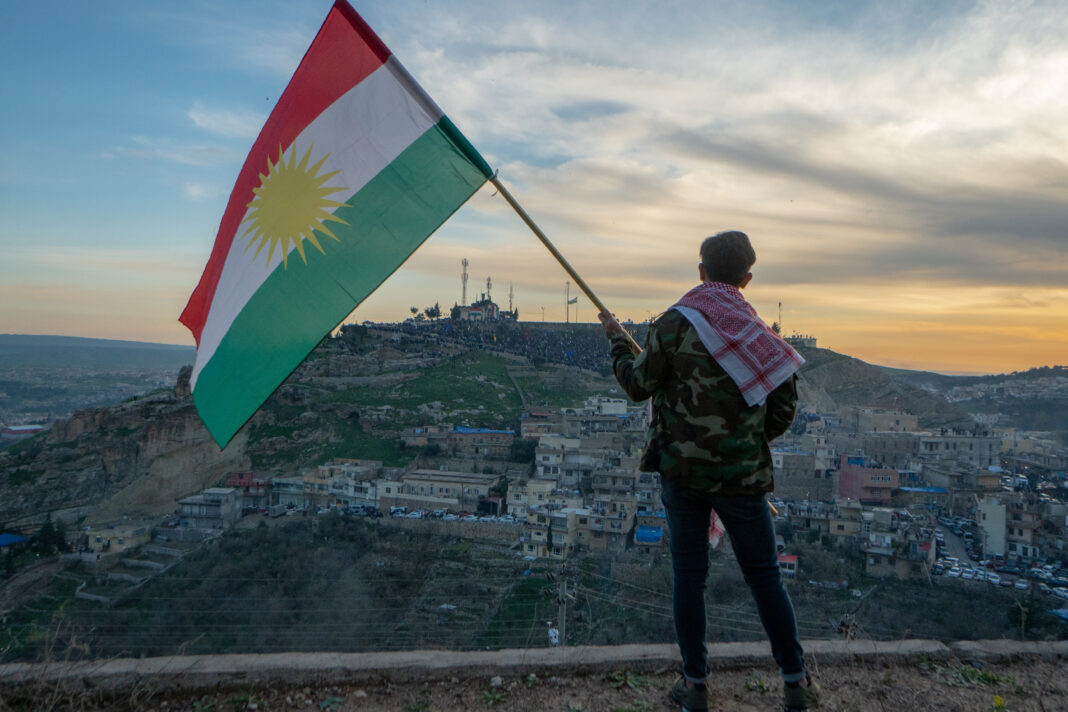by Ambra Visentin
Pressure is mounting in Iraqi Kurdistan from Turkey and Iran, with the support of the Baghdad Government. On Sunday 17 September, an alleged Turkish drone targeted a vehicle belonging to an armed group affiliated to the Kurdistan Workers’ Party (PKK) in Shingal, killing at least three members of the group. The next day, three more people were victims of another strike at the Arbat airport near the city of Sulaymaniyah in the semi-autonomous Kurdish region of northern Iraq. And also on Monday, according to PKK-linked media, the office of an umbrella group dominated by this party was attacked by an unidentified person in Erbil, resulting in the death of one of its members, Deniz Cewdet.
The province of Sulaymaniyah is home to anti-Turkish and anti-Iranian groups, namely the Kurdistan Democratic Party of Iran (KDPI), Komala, the Kurdistan Free Life Party (PJAK) and the Kurdistan Freedom Party (PAK). They have been accused of fomenting the national protest movement in Iran last year and inciting unrest in the country. Tehran has long accused the KRG of harbouring groups it considers “terrorists” and allowing them to use the border areas as a springboard for attacks against Iran. In March, Iran and Iraq signed a deal in which Baghdad agreed to disarm Kurdish opposition groups and secure the state boundary by 19 September. In July, the Iranian army threatened military action if Baghdad failed to meet the deadline.
The military bases that the Kurdish-Iranian political parties re-established from 2013 were mainly in the Kurdistan Democratic Party (KDP) area. Now, the pressure from Iran on the KDP is rising more than ever. Iranian Kurdish political parties are not as well organised as the PKK and cannot fight Iran or the Kurdistan Regional Government (KRG), because they do not have the military experience that the PKK has. They were thus forced to leave the mountains and return to refugee camps. Iran demands that these structures do not remain in the Kurdistan and that these people leave the Autonomous Region or are in Iraqi territory, not Iraqi-Kurdish territory.
“Iran is threatening to disarm and expel the Iranian and East Kurdish opposition forces in South Kurdistan, especially now that the women’s uprising in Iran is reviving,” says Refik Gafur, a member of the executive committee of the Kurdistan National Congress. Turkey, for its part, wants the Iraqi border forces to remain there and the KDP to replace the Kurdish-Iranian parties, which the PKK does not want. “The Kurdistan Democratic Party (KDP/Iraq) has deployed a large force in the Bradost region near the border with Iran. Some sources believe that the purpose of the deployment is something else and not only related to the parties in eastern Kurdistan,” the KNC member adds.
For Gefur, the attack on Arbat airport was instead part of a conspiracy by Turkey to disrupt the peace and stability of the Kurdistan region: “The counter-terrorism forces of the Kurdistan National Union (KNU) supported those of Western Kurdistan in the fight against ISIS. This, shall we say, ‘alliance’ is normal for the international coalition, but is unacceptable for the Turkish state”. On Tuesday, the Turkish Foreign Ministry stated in a statement that “it is understood that members of the PUK’s ‘Counter-Terrorism Group’ were conducting an exercise together with PKK/YPG terrorists at the time of the explosion,” but Baghdad accused Ankara of the incident.
The Turkish leadership is also said to be behind the murder of Deniz Cewdet: “Anyone who is active against Turkey’s occupation policy and the Turkish State’s attacks on Kurdistan is a target. Deniz Cewdet was a member of the Kurdistan National Congress (KNC). The efforts for the unity and solidarity of the Kurdish people were attacked. Of course, Kurdish unity is not in the interest of a hegemonic State like Turkey. According to the security forces in Erbil, one person has been arrested. I doubt that they will reveal his identity and bring him to justice. Unless they come up with a different scenario,” says Gefur.
Cover image by Felix Friebe on Shutterstock.
To learn more, read our Kurdistan conflict factsheet



























